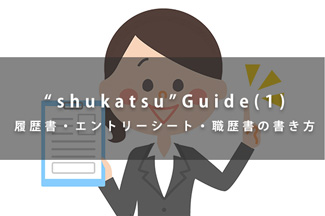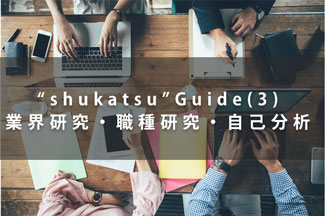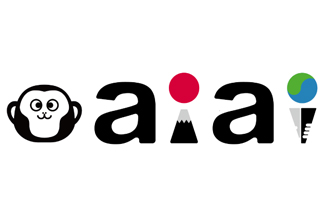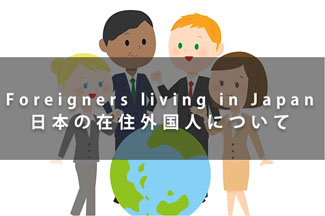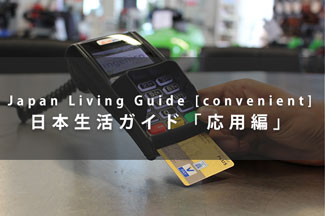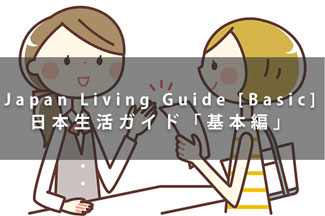【対策すれば怖くない!】就職活動ガイド➁「会社説明会・面接編」
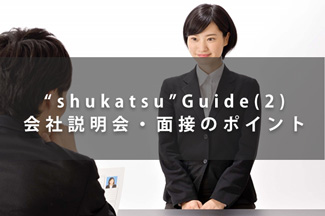
- CONTENTS -
1、会社説明会・面接とは
新卒の就職活動では、会社説明会があるところが多いです。
働いた経験のない学生にとっては、インターネットなどだけで得られる情報だけではイメージが湧きにくいものです。そこで、各企業は会社説明会を開催します。
企業も採用する人を選びますが、学生ももちろん企業を選ぶのですし、きちんと選ばなければなりません。
自分が働きたい仕事や企業の条件をきちんと明確にし、会社説明会で、自分の希望にあうのか、すり合わせる場所、それが会社説明会なのです。
会社説明会に出て、いいな、と思ったら選考を希望します。
通常は書類選考・(筆記試験・適性検査・論文など)・面接数回という流れになるでしょう。
面接は、会社によりますが、例を挙げると、
1、グループ面接やグループディスカッション(4~5人)
2、2次面接(人事(じんじ)など)
3、3次面接(部署責任者(ぶしょせきにんしゃ)など)
4、最終面接(社長や人事部長など)
中途採用の場合は、ここまで回数は重ねないかもしれません。
Many places have company information sessions for new graduates in their job search.
For students who have never worked at a company, it is difficult to get an idea of what it is like to work there if you can only get information from the Internet. That's why each company holds a company information session.
Companies choose the people they hire, but of course students also choose companies, and they must choose properly.
The company information session is a place where you can clarify the conditions of the job you want to work for and the company you want to work for, and then go to the company information session to find out whether or not the job meets your expectations.
If you attend a company information session and feel good about the company, you hope to be selected.
Usually, the process consists of document screening, (written test, aptitude test, essay, etc.), and several interviews.
The interviews will depend on the company, but for example
1, Group interviews and group discussions (4-5 people)
2, Second round of interviews (e.g., human resources)
3, Third round of interviews (e.g., department heads)
4, Final interviews (e.g., with the president, HR manager, etc.)
If you are a mid-career hire, you may not have to go through this many times.
2、会社説明会について
会社説明会では一般的には下記のような流れで開催(かいさい)されます。
1、会社に関しての説明
2、応募職種についての説明
3、福利厚生(ふくりこうせい)などについての説明
4、先輩社員(せんぱいしゃいん)のお話
5、質疑応答(しつぎおうとう)
などです。
会社によってプログラム内容は異なりますし、オリジナルな説明会をするところもあります。
会社説明会=応募ではない場合が多いので、たくさん参加してみると良いでしょう。
会社説明会で分かることは
・ホームページでは載(の)っていない会社のこと(事業内容など)
・具体的な仕事のイメージ(ここはとても大切です。)
・職場の雰囲気や働いている人の雰囲気
質疑応答では企業を選ぶ上で自分が必要な情報が揃(そろ)うまで、聞いてみると良いでしょう。
初めての日本の会社での就職は不安なこともあるでしょう。
・外国の方は働いているのか
・外国語が活かせる環境があるのか
・自分が学んだことが活かせる環境があるのか(ビザ申請に関わります。)
なども会社説明会できちんと解決してから、実際に選考に応募したほうがいいです。
しかし、その際にお給与や福利厚生、休日のことばかり聞いてしまうとあまり良い印象は持たれないかもしれません。通常は求人票に記載されていますので、それでもどうしても聞きたいことがある時は聞いてもよいでしょう。
In general, company information sessions are held in the following manner
1. Explanation about the company
2、Explanation of the position for which you are applying
3. Explanation of benefits, etc.
4, A story about a senior employee (a senior employee)
5. Question and answer session
etc.
Some companies have different programs, and some have original briefing sessions.
In many cases, a company information session does not mean that you are applying for a job, so it is a good idea to go to many company information sessions.
What you can learn from company information sessions
Companies that are not listed on the website (e.g., business activities)
How do you envision your work (this is very important)?
The atmosphere of the workplace and the people working there
During the question and answer session, it's a good idea to ask questions until you have all the information you need to select a company.
You may feel uneasy about finding a job at a Japanese company for the first time.
Do foreign people work in Japan?
Is there an environment where you can use your foreign language skills?
Will there be an environment where you can make use of what you have learned (this is related to visa application)?
It is better to solve these questions at the company information session before you apply for the job.
However, if you only ask about the salary, benefits and holidays, you may not get a good impression. It is usually listed in the job posting, so if you still have a question you really want to ask, it is okay to ask.
3、面接について
次は面接についてです。
面接では聞かれることはだいたい同じ内容が多く、また同じ形式(けいしき)が好まれることもあります。
それは、そのように話すことで自分を会社の人に分かってもらえるからです。
下記の話す内容と流れを、自分の内容に置き換えて下書きをしてみましょう。
下書きができたら、先生や日本人の友人などにチェックをしてもらい、その後見なくても話せるようになるまで練習をします。
■志望動機(業界・職種・企業)
・なぜこの業界に興味を持ったのか
・なぜこの職種に興味を持ったのか
・この企業のどんなところが良いと思ったのか
※会社の理念(りねん)、社長の魅力(みりょく)、商品や扱っているサービス、説明会の話から抜粋(ばっすい)する、説明会などで話をしてくれた人や垣間見(かいまみ)えた会社の雰囲気、などをあげると良いでしょう。
待遇が良いから、残業が少なそうだから、などはたとえ本当の理由でも言わない方が良いです。
■自分の長所・短所
長所は〇〇です。
・長所を生かしたエピソード
・長所がどのように仕事に役立つか
(長所の例としては、協調性・リーダーシップ・努力家・あきらめない力・発想力・勤勉さ・1番になりたいと思う気持ち、など何でもよいです。)
短所は〇〇です。
・短所をカバーしたり、克服(こくふく)するために取り組んだこと
※短所の例としては、考えすぎてしまう事、こだわりが強いところ、1番になりたすぎるところ、1人でもくもくと気づくと取り組んでしまうところ、など、裏を返すと長所としても捉えられるようなものが良いです。
よく寝坊(ねぼう)してしまう、時間にルーズ、約束を忘れがち、など、どう考えてもマイナスになるようなことは言わない方がいいでしょう。
■自己PR(自分はどのようにこの募集に向いているかアピールする)
自己PRと長所・短所は同じような内容ですので、内容が重(かさ)なっていても構いませんが、
・どのように仕事に生かせるか
・長所・短所で話したこと以外のエピソード
などが話せると良いでしょう。
■これまでに頑張ってきたこと
学校の授業
日本語の勉強
母国での受験や授業
アルバイト
なんでも構いません。大事なのは文章の組み立て方です。
〇〇を頑張りました。具体的には~に頑張りました。そこで、自分の長所である〇〇をいかしました。
〇〇という大変なこともありました。しかし~に乗り越えてきました。
この〇〇の経験は、募集職種において、~のように役に立ちます。
■学校で勉強したこと
外国の方の場合は勉強したことと、職種が直接結びつくので説明がしやすいでしょう。
また、日本の新卒は基本ポテンシャル採用が多いので、スキルがまだまだ伴わなくても、他のアピールでまかなうことができるでしょう。
学校で勉強したことは、具体的に話すと良いです。そして、それが業務にどのように役に立つか話しましょう。
■自由質問
最後に何か質問はありますか?と聞かれることが多いです。
ここで、特にありません、などと答えると、志望度(しぼうど)が低いのかな?と思われてしまいます。
事前に、ホームページや会社説明会などの情報から聞きたい事を作っておきましょう。
どうしても、考えられない、という方は下記を参考にしてください。
なお、一般的に、待遇や残業時間に関する質問はあまり良くは思われないのが日本の就職活動と言えます。
・具体的な仕事のやり方
・仕事の1日の流れ
・成績優秀(せいせきゆうしゅう)な人の特徴や仕事のやり方
・入社までにどんな知識やスキルを学んでおくと良いか
・サービス事例などお話が聞ける範囲(はんい)で
・先輩社員のお話
職場見学(しょくばけんがく)をさせてください、と言うと、会社の方には負担がかかる場合があります。
また、会社の機密情報などもあるので難しい場合もあります。
なぜ職場見学をしなければならないのか、職場見学をして知りたい情報はなにか、をまとめて聞けるものは聞いて解決(かいけつ)するようにすると良いでしょう。
また、初めての日本での就職は不安なことが多いと思います。素直にその思いを伝え、入社までに何を学んだり、準備しておくと良いかも聞いてもよいかもしれません。
そのことで、きちんとやる気があるんだな、と捉(とら)えてもらえるはずです。
Next, let's talk about interviews.
Most of the questions asked at interviews are the same, and sometimes the same format is preferred.
This is because talking in this way helps the company understand who you are.
Try drafting a draft of the following speeches, replacing them with your own content.
When you've written a draft, ask your teacher or a Japanese friend to check it, and then practice until you can speak without looking at it.
■Your reason for applying for a job (industry, job title, company)
・Why did you become interested in this industry?
・Why did you become interested in this type of work?
・What did you like about this company?
It's a good idea to mention the company's philosophy, the president's appeal, its products and services, excerpts from the company session, people who spoke to you at the sesson, and glimpses of the company's atmosphere.
It's best not to say things like "the benefits are good" or "the overtime is low," even if they're true.
■Your strengths and weaknesses
My strengths are XX.
・Episodes with strengths
・How your strengths will help you in your work
(Examples of strengths could be anything: cooperation, leadership, hard work, ability to never give up, ability to think, hard work, desire to be number one, etc.)
My weaknesses are XX.
・What you did to cover or overcome your weaknesses.
(Examples of weaknesses are: overthinking, being obsessive, wanting to be the first person to do something, and when you find yourself slogging away by yourself, you tend to work on it, which can be seen as a strength.
You should not say those mensiond after. For example, you often sleep in late, are a bit lazy on time, or tend to forget appointments, and so on.)
■Self-Promotion (Explain how you are suited for the position)
It's okay if the content of your personal statement and your strengths and weaknesses overlap.
・How can we apply it to our work?
Episodes other than what we discussed in the section on strengths and weaknesses.
■What you've worked hard for so far.
・School Lessons
・Studying Japanese
・Exams and classes in the home country
・part-time job
It doesn't matter what it is. What's important is the way you construct your sentences as follows.
I did my best on XX. Specifically, I worked hard on So, I made use of my strength, XX.
There were difficult times when I had to do something difficult, but I overcame it.
This experience of XX is useful for the position for which the company is recruiting.
■What you studied in school
If you are from a foreign country, it will be easier to explain what you studied and the job title directly.
Also, many new graduates in Japan are hired for basic potential positions, so even if your skills don't yet accompany you, you can still make up for it with other appeals.
It's a good idea to be specific about what you studied at school. You should also talk about how it will help you in your work.
■Free Questions
You are often asked if there are any questions at the end.
If you answer "nothing in particular" here, people will think that you are not very interested in the job.
In advance, make up what you want to hear from the website and company information sessions.
If you can't think of anything to ask, please refer to the following.
In addition, it can be said that questions about treatment and overtime are generally not well thought of in Japanese job-hunting activities.
・Specific work style
・A typical day at work
・Traits and ways of working of people with high grades
・What knowledge and skills should I learn before joining the company?
If you ask to be allowed to take a tour of the workplace, it can be a burden on the company.
It may also be difficult to do so because of confidential company information.
It is a good idea to ask why you have to go on a workplace tour and what information you would like to know on a workplace tour, and then try to solve the problem by asking what you can collectively.
Also, there are many things that make you feel uneasy about finding a job for the first time in Japan. It may be a good idea to honestly express your feelings, and ask what you should learn or prepare for before joining the company.
This should help them see that you are properly motivated.
